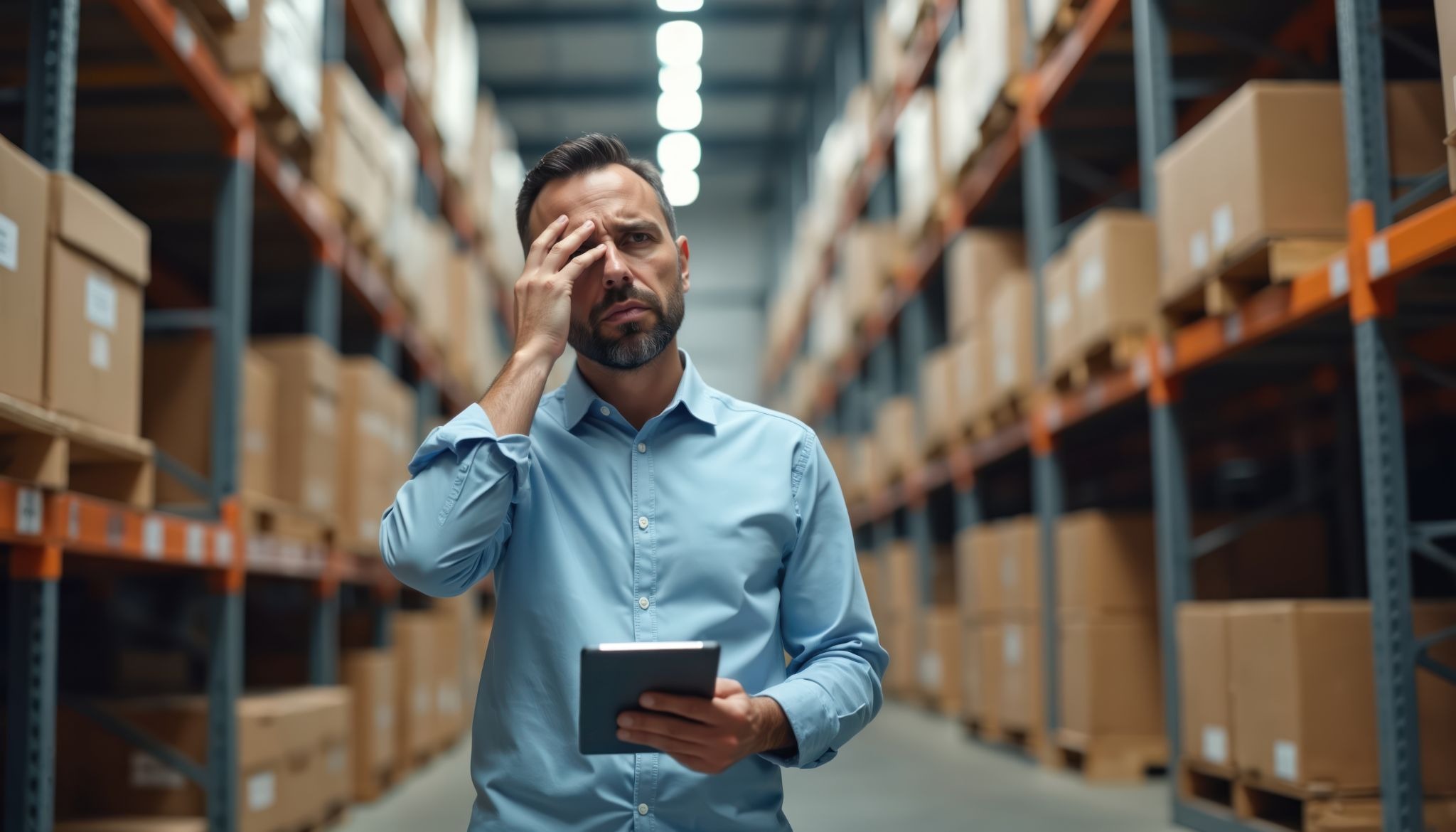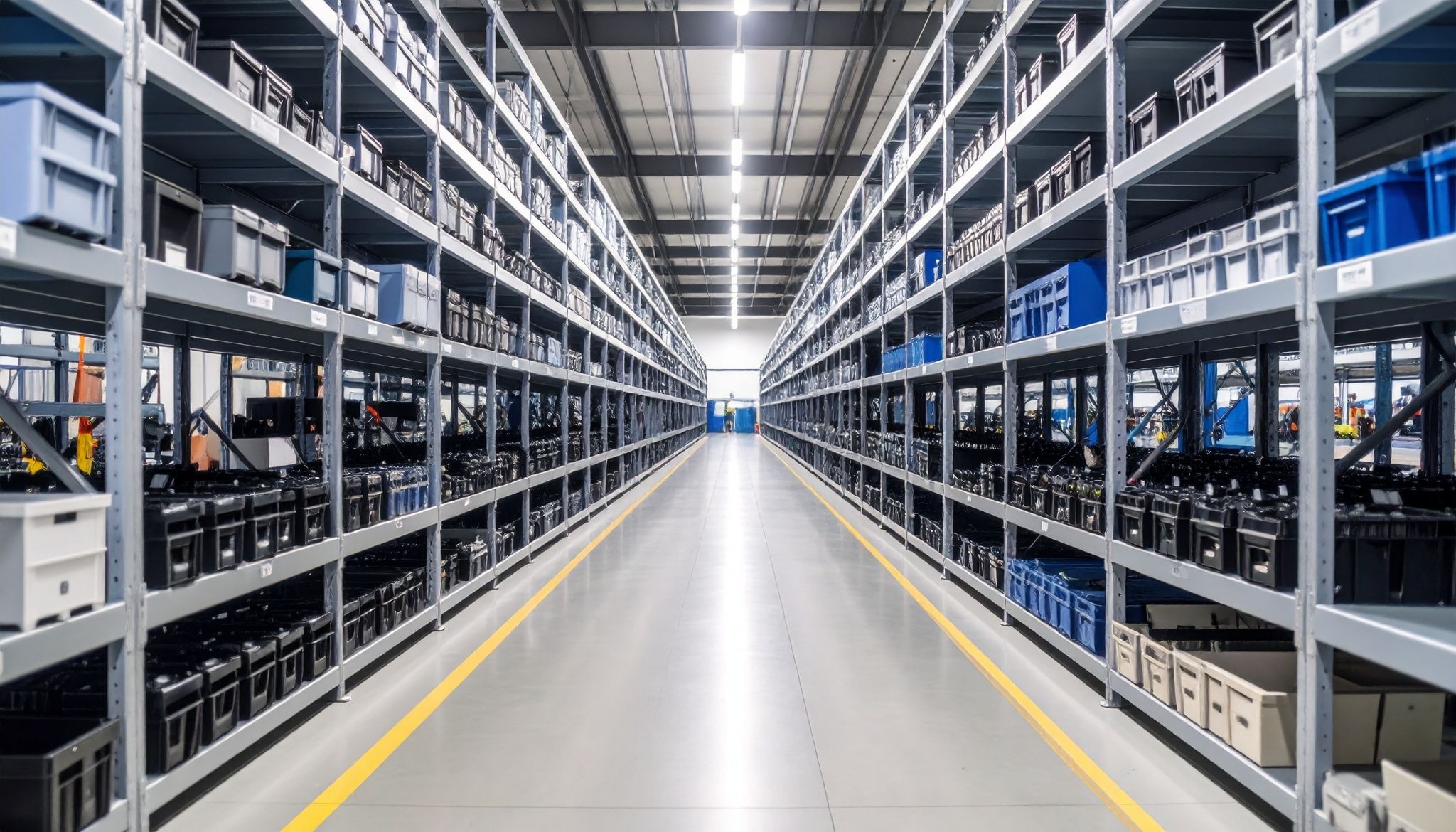In the automotive industry, where complex supply chains move millions of parts across global networks, returnable packaging, such as pallets, containers, and bins, plays a critical role. These reusable assets protect components in transit, minimize single-use materials, and lower packaging costs. However, without proper visibility and control, returnable packaging can easily become a hidden source of waste, inefficiency, and environmental harm.
This is where Real-Time Location Systems (RTLS) come in. By providing precise tracking and data-driven management of returnable packaging, RTLS technology helps automotive manufacturers and suppliers significantly reduce environmental waste while improving operational efficiency and compliance.
The Problem: Lost and Underutilized Returnable Packaging
In the automotive supply chain, thousands of reusable containers and pallets circulate between suppliers, OEMs, and distribution centers daily. Yet, studies estimate that 5–10% of returnable packaging assets are lost or misplaced every year, leading to unnecessary replacements and increased carbon emissions.
These losses often stem from:
- Manual tracking errors or reliance on spreadsheets
- Lack of visibility across supplier networks
- Bottlenecks where packaging sits idle or unused
- Overproduction of packaging to compensate for shortages
Every lost or unused returnable container means more raw materials extracted, more energy consumed, and more waste generated—all of which directly undermine sustainability goals.

The Solution: RTLS for Sustainable Packaging Management
RTLS (Real-Time Location Systems) use technologies such as Bluetooth, UWB, and GPS to track the movement and status of packaging assets throughout their lifecycle. When applied to returnable packaging, RTLS enables automotive companies to gain end-to-end visibility, automate inventory management, and eliminate wasteful practices.
Key Environmental Benefits of RTLS in Returnable Packaging:
- Reduced Packaging Waste
By knowing the exact location and quantity of each returnable asset, companies can avoid overordering and minimize the need for disposable packaging. Fewer lost containers mean fewer replacements and less material waste overall. - Optimized Asset Utilization
RTLS data reveals how often containers are used, where they sit idle, and where shortages occur. This allows for better reuse cycles and circulation planning, ensuring assets remain in active use rather than collecting dust. - Lower Carbon Footprint
Efficient reuse of packaging directly cuts the emissions associated with manufacturing new containers, waste disposal, and unnecessary transport. By streamlining return logistics, RTLS helps reduce the total number of trips and miles driven. - Enhanced Supply Chain Collaboration
RTLS data can be shared securely across suppliers and logistics partners, ensuring that all stakeholders maintain accountability for packaging returns. This promotes a circular economy model, where materials are continuously reused rather than discarded. - Data-Driven Sustainability Reporting
With RTLS, sustainability metrics such as return rates, reuse frequency, and CO₂ reduction can be quantified and reported accurately. This supports corporate ESG goals and makes it easier to demonstrate environmental impact to regulators and investors.
Example: RTLS in the Automotive Supply Chain
A major automotive parts supplier implemented RTLS to track over 50,000 returnable containers moving between its plants and OEM customers. Before deployment, the company lost approximately 8% of its containers annually, equivalent to over 100 tons of wasted plastic and steel.
After RTLS deployment:
- Container loss dropped by 70% in the first year
- Cycle time for returns improved by 30%
- The company achieved an estimated CO₂ reduction of 400 metric tons annually
The result: a leaner, greener, and more transparent supply chain.

Driving Toward a Circular Automotive Supply Chain
As automotive manufacturers intensify their focus on carbon neutrality and zero-waste production, RTLS for returnable packaging stands out as a powerful enabler. By closing visibility gaps, it transforms packaging from a logistical afterthought into a strategic sustainability asset.
Investing in RTLS doesn’t just make environmental sense, it makes business sense. Reduced material costs, fewer disruptions, and stronger ESG performance all add up to a more resilient, competitive, and responsible automotive supply chain.
To learn more about how Cassia Networks can enable your RTLS solution using Lamplight Logistics, reach out to sales@cassianetworks.com to get connected with our team members.
To learn more about Lamplight Logistics, reach out to team@lamplightlogistics.com to get connected with their team.









